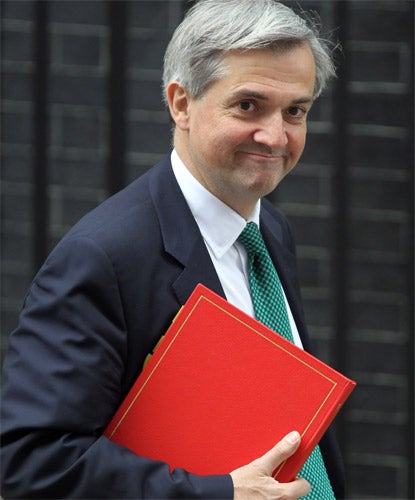Huhne orders checks on nuclear power station safety systems

Your support helps us to tell the story
From reproductive rights to climate change to Big Tech, The Independent is on the ground when the story is developing. Whether it's investigating the financials of Elon Musk's pro-Trump PAC or producing our latest documentary, 'The A Word', which shines a light on the American women fighting for reproductive rights, we know how important it is to parse out the facts from the messaging.
At such a critical moment in US history, we need reporters on the ground. Your donation allows us to keep sending journalists to speak to both sides of the story.
The Independent is trusted by Americans across the entire political spectrum. And unlike many other quality news outlets, we choose not to lock Americans out of our reporting and analysis with paywalls. We believe quality journalism should be available to everyone, paid for by those who can afford it.
Your support makes all the difference.Britain's nuclear power plants are to be checked to ensure they can withstand sudden flooding and torrential storms, the Energy Secretary, Chris Huhne, said yesterday.
He stressed that this country did not face the twin perils of earthquakes and tsunamis, noting that the Japanese tremor was 130,000 times bigger than the largest ever experienced in Britain.
But he acknowledged that the catastrophe could hit public opinion in Britain towards plans for a new generation of nuclear power stations and deter the private sector from investing in them.
An emergency review into safety standards in nuclear plants will investigate back-up systems for when reactors are damaged, as well as whether employees have adequate training in responding to emergencies.
Mr Huhne admitted that there was "an ongoing potential risk" that the problems in Japan could deter private investment in nuclear power – an estimated £200bn-plus is required over the next 10 to 20 years to transform Britain into a low-carbon economy. Currently, nuclear power supplies about 18 per cent of the UK's electricity.
The Energy Secretary has conceded that public views on nuclear power would obviously be "very influenced" by the crisis at Fukushima.
The implications of the disaster for Britain were discussed at yesterday's cabinet meeting, while Mr Huhne told MPs that the Government was determined to "learn the lessons" of the problems in Japan.
Referring to the flooding of 2007, the Energy Secretary said: "We do have within our recent experience some very extreme weather events. You will remember floods in Gloucestershire and other parts of the country only a few summers ago. We have to be sure all our back-up systems are similarly proofed against those sort of extreme weather events."
Mike Weightman, the chief nuclear inspector, is carrying out an urgent review into standards both at existing power stations and at those still on the drawing board.
Eight sites have been identified as potentially suitable for new power stations, but are awaiting both planning approval and declarations of interest from the private sector.
In evidence to the Energy and Climate Change Select Committee, Mr Huhne refused to be drawn on whether Dr Weightman's review could affect the plans for new nuclear generation.
He said: "I believe we are running a very robust safety regime. Does that mean I am going to be complacent and say that we have no lessons to be learnt from Japan? No.
"Although there are major differences between our situation and the Japanese situation, there may be parallels in how robust our back-up systems can be, and we have to be open-minded about that and make sure that we are learning the lessons."
Mr Huhne also accused other European governments of "rushing to judgements" over the safety of nuclear power in the wake of the Japan crisis. He took a swipe at "continental politicians" hours after Germany announced that it would close down seven older reactors, possibly permanently.
Join our commenting forum
Join thought-provoking conversations, follow other Independent readers and see their replies
Comments